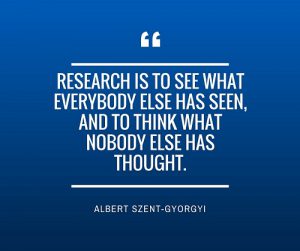Pragmatic Research & Consultancy
Mixed methods approach or pragmatic approach is a research inquiry that employs both qualitative and quantitative approaches for the purposes of breadth and depth of understanding.
The opposite of idealistic is pragmatic, a word that describes a philosophy of “doing what works best.” From Greek pragma “deed,” the word has historically described philosophers and politicians who were concerned more with real-world application of ideas than with abstract notions.
Pragmatic research asks whether an intervention works under real-life conditions and whether it works in terms that matter to the patient. It is simply concerned with whether the intervention works, not how or why. Pragmatic studies are most useful for deciding what services should be provided but give only limited insight into why interventions do or do not work.
The pragmatic approach to science involves using the method which appears best suited to the research problem and not getting caught up in philosophical debates about which is the best approach. Pragmatic researchers therefore grant themselves the freedom to use any of the methods, techniques and procedures typically associated with quantitative or qualitative research. They recognize that every method has its limitations and that the different approaches can be complementary.
They may also use different techniques at the same time or one after the other. For example, they might start with face-to-face interviews with several people or have a focus group and then use the findings to construct a questionnaire to measure attitudes in a large scale sample with the aim of carrying out statistical analysis.
Why make an impact?
In recent years, the government has placed increasing emphasis on the need for evidence of economic and social returns from its investment in research. By ensuring that ESRC-funded research makes the biggest possible impact on policy and practice, and improving how we measure and capture this, we are better able to support the case for research funding.
Benefits for society
By ensuring that decisions on policy and practice are informed by secure evidence, research can help to:
• Improve the effectiveness and sustainability of public, private and third sector organisations
• Improve social welfare and cohesion
• Increase economic prosperity, wealth creation and regeneration
• Enhance cultural enrichment and quality of life.
Benefits for researchers
Researching with impact in mind can help researchers with:
• Early feedback – to help shape your research agenda and improve methodologies
• Relevance – ensuring your research is meaningful, timely and useful
• Recruiting participants, for example for focus groups or surveys
• Developing new skills and raising your profile.
Types of research impact
- Academic impact is the demonstrable contribution that excellent social and economic research makes to scientific advances, across and within disciplines, including significant advances in understanding, methd, theory and application.
- Economic and societal impact is the demonstrable contribution that excellent social and economic research makes to society and the economy, of benefit to individuals, organisations and nations.
The impact of research, be it academic, economic and social can include: - Instrumental: influencing the development of policy, practice or service provision, shaping legislation, altering behaviour
- Conceptual: contributing to the understanding of policy issues, reframing debates
- Capacity building: through technical and personal skill development.

